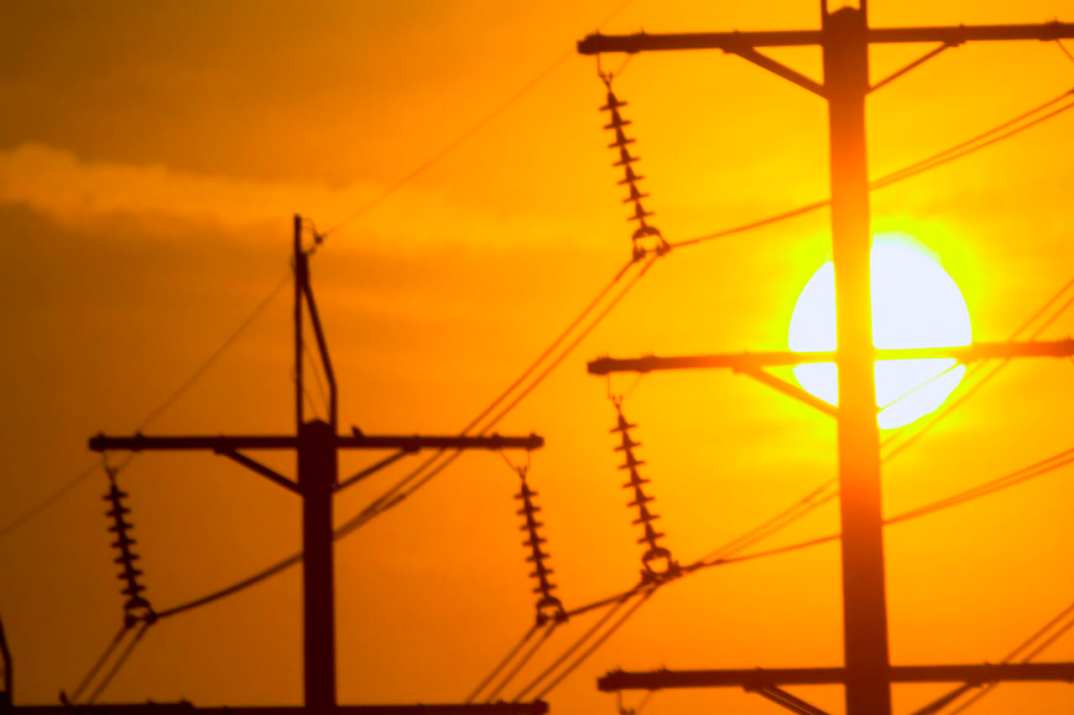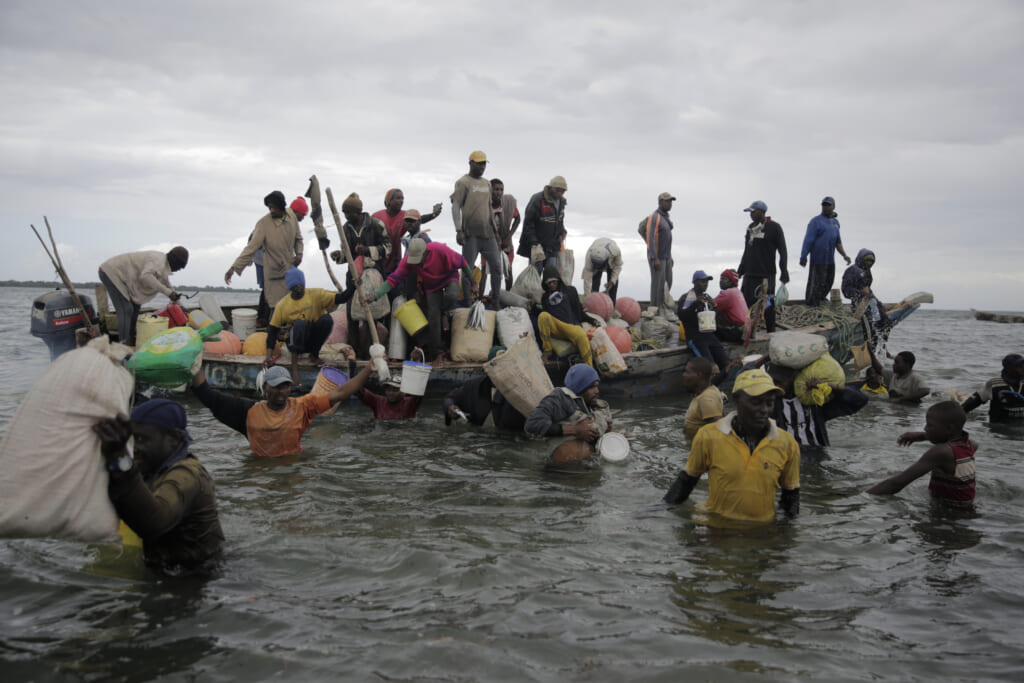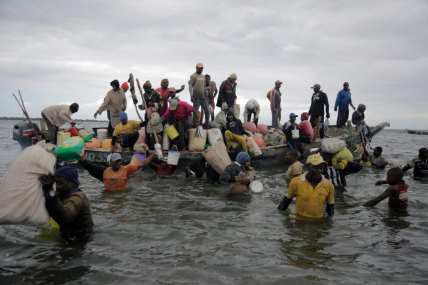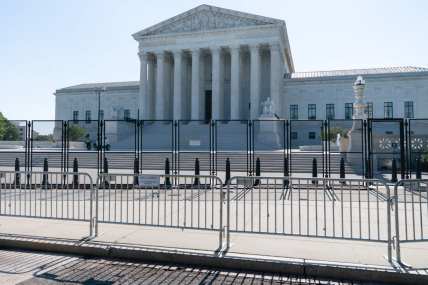People of color around the globe are fleeing areas because of climate change. Will the climate migration crisis hit the United States?
OPINION: If we don’t start taking climate change seriously, the climate migration crisis will be at our doorstep before we know it.

Editor’s note: The following article is an op-ed, and the views expressed are the author’s own. Read more opinions on theGrio.
As record temperatures soar around the globe, it’s hard not to think about the impact climate change is having on the world.
Millions of Black and brown people worldwide are moving from their homes to more climate-friendly areas because of water scarcity, declining crop productivity and rising sea levels.
Climate migration—the forced displacement of a now untenable environment as a consequence of climate change, such as drought, flooding, wildfires or erosion—is a global phenomenon that is well documented abroad and a growing trend we must take note of in the United States.
I have discussed why Black communities are bearing the brunt of climate change and how the racial wealth gap, redlining and historic segregation have resulted in Black people living in less desirable, low-lying and flood-prone areas in many cities throughout the United States.
African-American populations are more likely to live in hot spots—the killer heat report found that the counties with the highest numbers of Black people were exposed to extreme temperatures two to three more days per year than those the counties with smaller Black populations—and by midcentury, the expectation is that those same counties will experience about 20 more extreme heat days per year. The highest density of these hotspots is in the Southeast and along the Gulf Coast, where the vast majority of Black people reside.
Multiple seasons of failed crops, storm surges that have destroyed homes and contaminated drinking water have forced Black people, especially those who live in the South, to migrate inwards in search of less vulnerable environments. Some have had to leave behind family and friends who simply do not have the means to move, putting their health at risk. To make matters worse, sky-high inflation combined with record-breaking temperatures means many Black Americans have had to make tough decisions between running up the electricity bill or paying for food, rent, gas and other essentials.

The issues do not end there. The climate change problem is so bad in Mexico that people have begun to flee to the United States for relief. UCLA anthropologist Jason De León, who directs the Undocumented Migration Project, a long-term study of unauthorized migration, recently reported that severe dehydration, as desert temperatures warm and border crossing conditions become harsher, will be a major killer of people attempting to enter the U.S. from Mexico, both now and over the next 30 years. While the medical and public health systems have some resources in place to offset the overcrowding and potential strain on hospitals, it’s impossible to anticipate the magnitude of the response that will be needed if climate change continues to worsen.
A struggling economy also plays a role in the effect of extreme heat on America’s most vulnerable populations. An ever-growing wealth gap means some Americans cannot afford air conditioning. Air conditioning is not a luxury—it is essential for good health. Air conditioning removes pollen, pollutants, allergens and humidity from the air. It also keeps homes cool, which is especially important for older adults whose body’s lose the ability to regulate temperature over time. Without being able to effectively cool down, the elderly are prone to heat-related illnesses (HRI) like heat syncope, heat cramps, heat exhaustion and heat stroke (the most severe complication of HRI that may be fatal without immediate medical attention).
In rural and suburban America, the use of blinds or passive cooling in a dark room or basement used to be enough to stave off the heat on a warm summer day but these are not normal times. Vegetation and trees provide some shade in these areas, but their absence in cities means the impact of heat waves is even worse in urban America. Asphalt, concrete and any other surfaces absorb sunlight all day. The concrete and steel walls of apartment buildings trap radiation, giving off heat. Without proper air conditioning and ventilation, fans simply blow hot air around and blinds may not adequately cool down one’s apartment.
To some degree, climate migration is an inevitable reality we cannot avoid, but if we don’t start taking climate change seriously, by changing the individual behaviors that contribute to its development and supporting national policies aimed at climate reform, the climate migration crisis will be at our doorstep before we know it.
Senator Joe Manchin’s veto of President Joe Biden’s most recent iteration of the climate bill is a major blow to climate reform efforts. The irony of missing out on this golden opportunity to make climate reform law, while the country experiences some of its highest temperatures on record, is both enigmatic and emblematic of the need to elect government officials who care about saving our planet. Continuing on this current path, where we fail to reduce heat-trapping emissions and extreme heat soars, will leave behind a world that is uninhabitable for our children.
Fortunately, with the right actions now, on a local and national level, we can prevent this from becoming a reality. Bold actions to dramatically reduce emissions like using non-CFC and biodegradable products, throwing trash in trash cans, carpooling and using public transportation, making housing more affordable, and ensuring that clean-energy alternatives are affordable and widely accessible are no longer an option if Black and brown families want to stay in their homes. Working with grassroots organizations and local governments to make this a reality is one path moving forward.
We may not all be affected by climate change to the same degree, but its consequences will be felt by all. The impacts of climate change are gradual and sometimes hard to see, and committing to change when imminent repercussions are not apparent is difficult. Some actions are doable, some are routine, and others are idealistic and out of our personal control—but if we don’t do it all, the irreparable damage of climate change will be a crisis we may not have the luxury of ignoring.

Dr. Shamard Charles is the executive director of graduate studies in public health at St. Francis College and sits on the Medical Advisory Board of Verywell Health (Dot Dash-Meredith). He is also host of the health podcast, Heart Over Hype. He received his medical degree from the Warren Alpert Medical School of Brown University and his Masters of Public Health from Harvard’s T.H. Chan School of Public Health. Previously, he spent three years as senior health journalist for NBC News and served as a Global Press Fellow for the United Nations Foundation. You can follow him on Instagram @askdrcharles or Twitter @DrCharles_NBC.
TheGrio is FREE on your TV via Apple TV, Amazon Fire, Roku, and Android TV. Please download theGrio mobile apps today!


